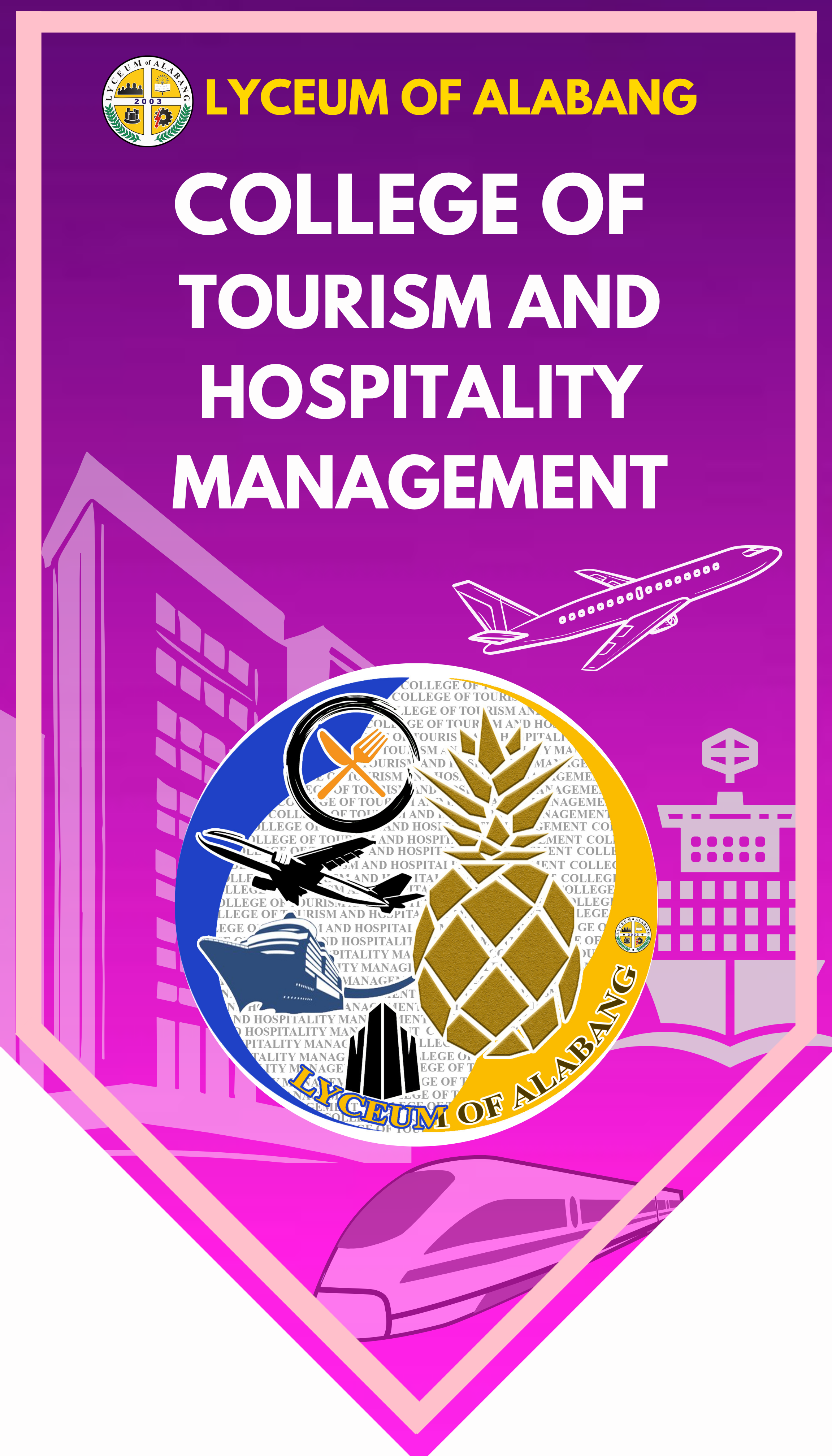MR. IVAN Z. POCDOLACION
Program Chair, BSHM
MR. YGIE ONIN PANGILINAN
OIC Program Chair, BSTM
VISION
.
MISSION
.
CONTACT DETAILS
MR. IVAN Z. POCDOLACION
Program Chair, BSHM
yo.pangilinan.college@lyceumalabang.edu.ph
MR. YGIE ONIN PANGILINAN
OIC Program Chair, BSTM
yo.pangilinan.college@lyceumalabang.edu.ph
TEL NO: (02) 8856-9323 loc
SOCIAL MEDIA PAGE
PROGRAMS
BACHELOR OF SCIENCE IN HOSPITALITY MANAGEMENT
Program Educational Objectives (PEOs)
Three to five years after graduation, the BS in Hospitality Management alumni shall:
-
- have career progression in their field of specialization;
- demonstrate globally competitive skills and Lycean values; and
- engage in community and/or national development.
Program Intended Learning Outcomes (PILOs)
At the completion of the BS in Hospitality Management program, the students are expected to:
-
- Apply core business concepts and operational skills relevant to the various sectors of the hospitality industry, including hotel, restaurant, events and tourism management.
- Demonstrate effective leadership, teamwork, and professional behavior in diverse hospitality settings, modeling ethical practices and responsible decision-making.
- Communicate proficiently in both oral and written forms, using industry-appropriate language to interact with guests, colleagues, and stakeholders.
- Analyze problems and make informed decisions using critical thinking, problem – solving strategies and appropriate technology.
- Exhibit awareness of and sensitivity to cultural diversity, social responsibility, and ethical considerations in the global hospitality context.
- Integrate theoretical knowledge with practical skills through hands-on experiences, internships, and industry engagement to address real-world challenges in hospitality management.
- Demonstrate entrepreneurial skills and innovative thinking to identify, develop, and manage hospitality-related business opportunities.
- Advocate for sustainable practices and corporate social responsibility in hospitality operations to contribute positively to the community and environment.
BACHELOR OF SCIENCE IN TOURISM MANAGEMENT
Program Educational Objectives (PEOs)
Three to five years after graduation, the BS in Tourism Management alumni shall:
-
- have career progression in their field of specialization;
- demonstrate globally competitive skills and Lycean values; and
- engage in community and/or national development.
Program Intended Learning Outcomes (PILOs)
At the completion of the BS in Tourism Management program, the students are expected to:
-
- Demonstrate up – to – date knowledge, skills, and competencies required for effective practice in the tourism profession, including travel operations, tour services and event (MICE) management.
- Plan, develop, and evaluate tourism sites, attractions, and marketing programs, arranging required travel services in accordance with global industry standards.
- Utilize information technology and computerized reservation systems responsibly and skillfully to ensure efficient tourism operations.
- Perform administrative, managerial, and human capital development functions in tourism – oriented organizations, including financial management and risk mitigation
- Communicate proficiently in oral and written forms, using industry – appropriate language to serve clients and collaborate with colleagues and stakeholders.
- Analyze situations, identify problems, and formulate solutions using critical thinking and problem-solving strategies, applying these in diverse tourism contexts.
- Exhibit ethical practices, social responsibility, and appreciation for Filipino hospitality and culture while remaining open to global influences and diversity.
- Undertake and produce research studies, such as business plans, feasibility studies, and tourism master plans, contributing to the development of the tourism industry.
- Engage in continuous professional growth and lifelong learning to adapt to the evolving demands of the tourism sector
- Collaborate effectively with various stakeholders to formulate community development programs and promote sustainable tourism practices


